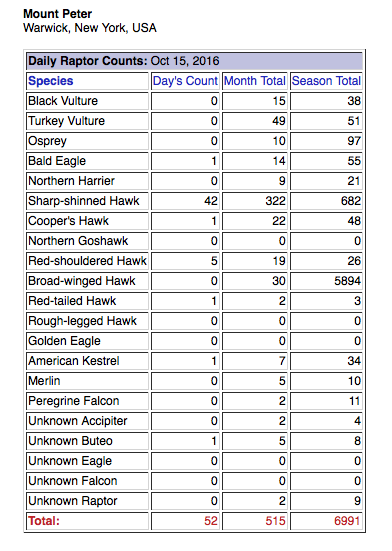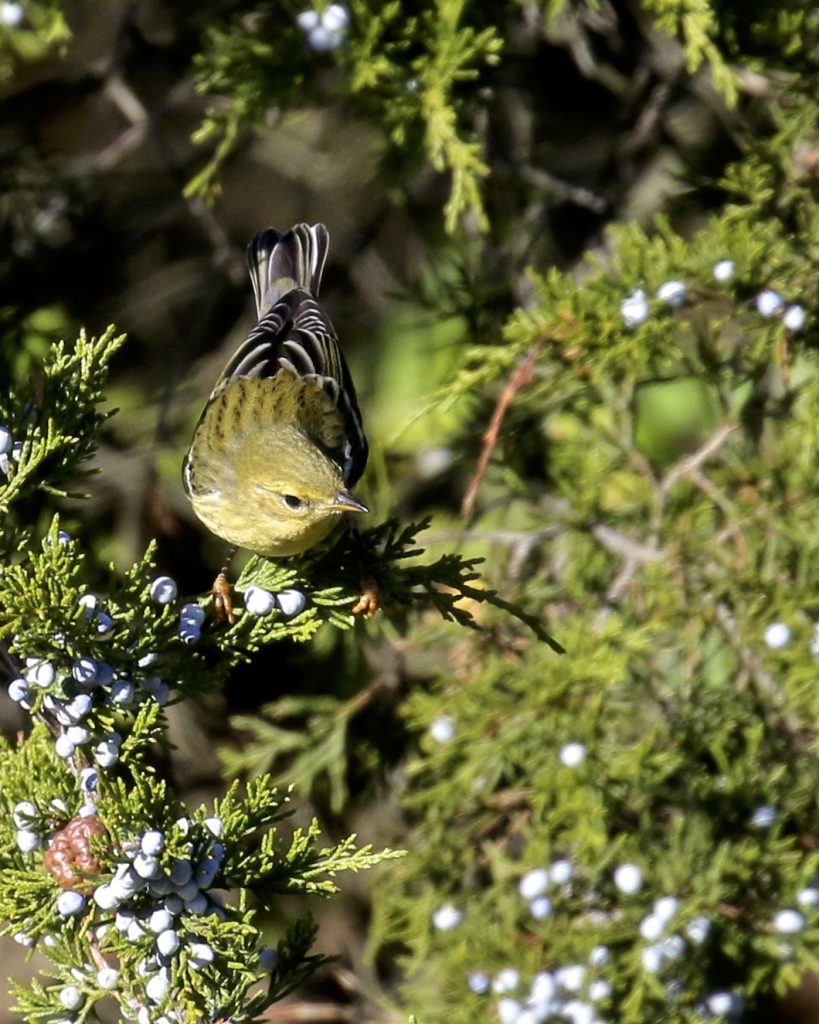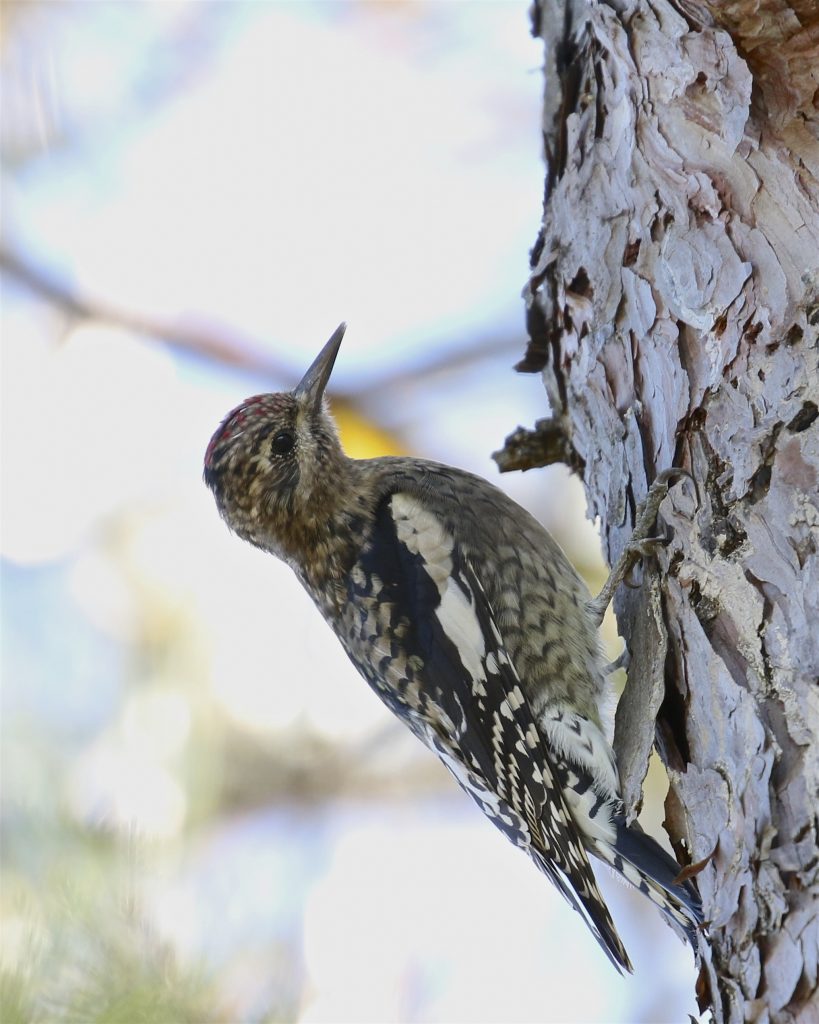
I was not very optimistic as I headed out to do my Saturday of counting at Mount Peter Hawkwatch. The wind direction was not going to be favorable, and additionally, the forecast was for clear blue skies all day, which is a hawkwatcher’s worst sky. I was pleasantly surprised to have a pretty good flight in spite of the adverse conditions. I had a total of 52 migrating raptors, most of which were Sharp-shinned Hawks. The highlight of the day was getting absolutely killer looks at a couple of adult Red-shouldered Hawks in the scope as they migrated through. Big thanks to Denise Farrell who helped me out for most of the day. Here’s my report:
 Official Counter: Matt Zeitler
Official Counter: Matt Zeitler
Observers: Denise Farrell
Visitors:
Pam Bryant and Joe Zera
Weather:
Sunny with almost no clouds. Gentle winds from the east early on and shifting to the south. Temperatures ranged from 6 to 19 degrees Celsius.
Raptor Observations:
-One immature Bald Eagle -One unknown, one immature, and 3 adult Red-shouldered Hawks. -One unknown American Kestrel
Non-raptor Observations:
Other species: Cedar Waxwing (30), American Crow (13), Common Raven (4), Black-capped Chickadee (6), Ruby-crowned Kinglet (1), Blue Jay (25), Canada Goose (11), Northern Cardinal (1), American Goldfinch (5), White-breasted Nuthatch (1), Red-breasted Nuthatch (1), Blackpoll Warbler (1), Eastern Bluebird (2), Yellow-rumped Warbler (4), American Robin (2), House Finch (1), Red-bellied Woodpecker (2), Ring-billed Gull (4), Yellow-bellied Sapsucker (1).



Matt,
My husband and I enjoy (and I envy) your photos and learn a lot from your comments.
As a novice bird watcher, could you explain why a clear sky isn’t optimal for observing hawks?
Thanks for sharing your knowledge and enthusiasm with your followers.
Julie
Julie – I’m glad that you and your husband are enjoying the blog. To me, there are a few reasons that a clear sky is tough for hawkwatching. The biggest is that it is just harder to pick up the birds on a blue sky – they seem to get lost in a vast sea of blue. And conversely, it’s easier on the eyes against a gray/white cloudy background. Clouds also provide a focus point in the sky for your binoculars, as well as landmarks to reference the location of the birds. And, finally, I think that the cloud cover seems to keep the birds down a little bit lower and therefore easier to see. I’ve never explained this before, I’ve just known from experience that it is so. I hope I’ve explained it well, and if any other experienced hawk watchers have something to add, I’d love to hear it. Thanks for commenting Julie, Matt
Thanks for your explanation.
It makes sense.
Again, I appreciate you sharing your experiences. We often visit places you reference and learn a lot from you.
So much to learn, but enjoying nature, visiting new places, and sharing new discoveries makes it the best way to spend our free time.
All the best.
Julie
I couldn’t agree more, Julie. Matt
That sapsucker shot is awesome. Looks like maybe a young bird? Good day.
Kyle
Thanks Kyle, and yeah, Denise commented that it was a young bird as well. Pretty good day, especially going in with low expectations. Matt